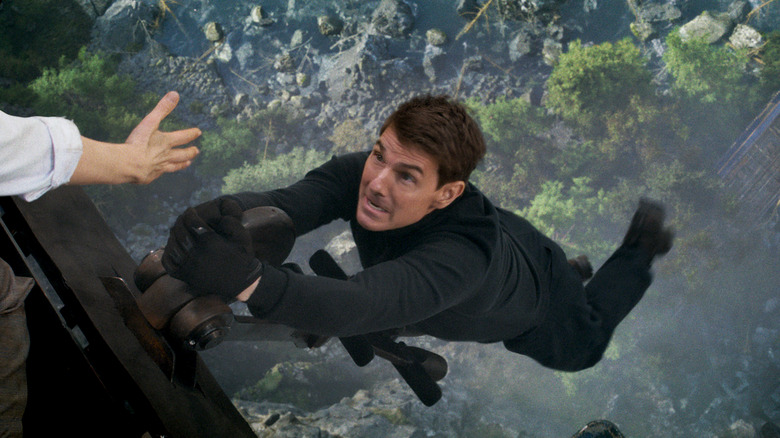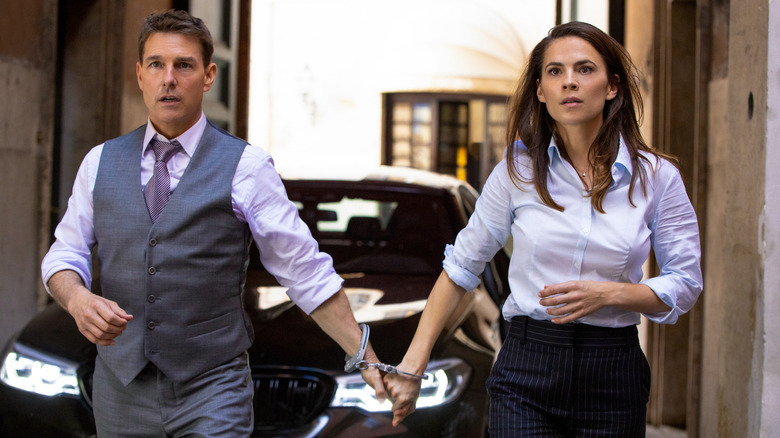A Note From Tom Cruise Guided Mission: Impossible's Entire Character Experience
Ever since Christopher McQuarrie took over writing and directing the "Mission: Impossible" franchise, you will oftentimes see characters confronted with a problem that needs solving, and they will deliver a line like, "I'm working on it" or "I'll figure it out." One of my favorite instances of this is in "Fallout" after the exceptional bathroom fight scene. Rebecca Ferguson's Ilsa says to Tom Cruise's Ethan, "You don't understand what you're involved in," and he responds with, "I don't understand what I'm involved in? I don't understand what I'm involved in? (long pause) What am I involved in?"
Ethan Hunt and his fellow I.M.F. agents are also problem-solving in real time. They never have all the information, never have all the context, and never have a foolproof plan. Stuff is always going wrong, be it technology failing or someone double-crossing them. All of those spectacular Tom Cruise stunt sequences aren't just about risking his life for pure entertainment. The setup for all of those outrageous things is a last resort because nothing else will get the job done. Ethan never seeks out the thrill. They are simply necessities. Having your characters' backs against the wall makes for the most exciting drama.
This storytelling style was not arrived at by accident. It has been a carefully honed process over the course of this series, especially when Christopher McQuarrie came aboard as a writer and director. In fact, the drama of the "Mission: Impossible" films is directly inspired by how McQuarrie and Tom Cruise collaborate on these films, as they too make it a habit of generating the stories of these pictures essentially in real time.
Experience the filmmaking experience
For those of us fascinated by the filmmaking process, Christopher McQuarrie has been an invaluable resource. Through his many long-form interviews, especially the Empire Spoiler Special Podcast, McQuarrie has been refreshingly transparent and specific about making the "Mission: Impossible" movies. Going in, they have a broad notion of the film's emotional core, several set pieces that they want to execute, and several actors they want to work with. These movies don't start with finished scripts in the slightest. McQuarrie and Tom Cruise then spend the whole of production finding the story and characters to tie all of their disparate ideas together. Those "I'll figure it out" statements in the films may as well just be the creative partners saying it to their cast and crew.
Cruise felt it was best to bring that same energy to the films themselves, as McQuarrie recounts all the way back in the special features for "Mission: Impossible — Rogue Nation:"
"The journey of the characters is dictated by a note that Tom gave me very early on. He said, 'I want the team to be experiencing what you and I experience when we're making a movie.' We look at each other as two people who are in the trenches and sort of fighting our way out, or shooting our way out as the case may be, and so Tom wanted to take that sense of camaraderie and that sense of chaos and translate it into 'Mission: Impossible.'"
That philosophy has carried over into the two subsequent films as well. When Cruise jumped the motorcycle off the cliff in "Dead Reckoning Part One," they weren't entirely sure why he was doing it. They figured it out. Most films made like this end up being disasters. I believe integrating it into the story is key for that perfect alchemy.

